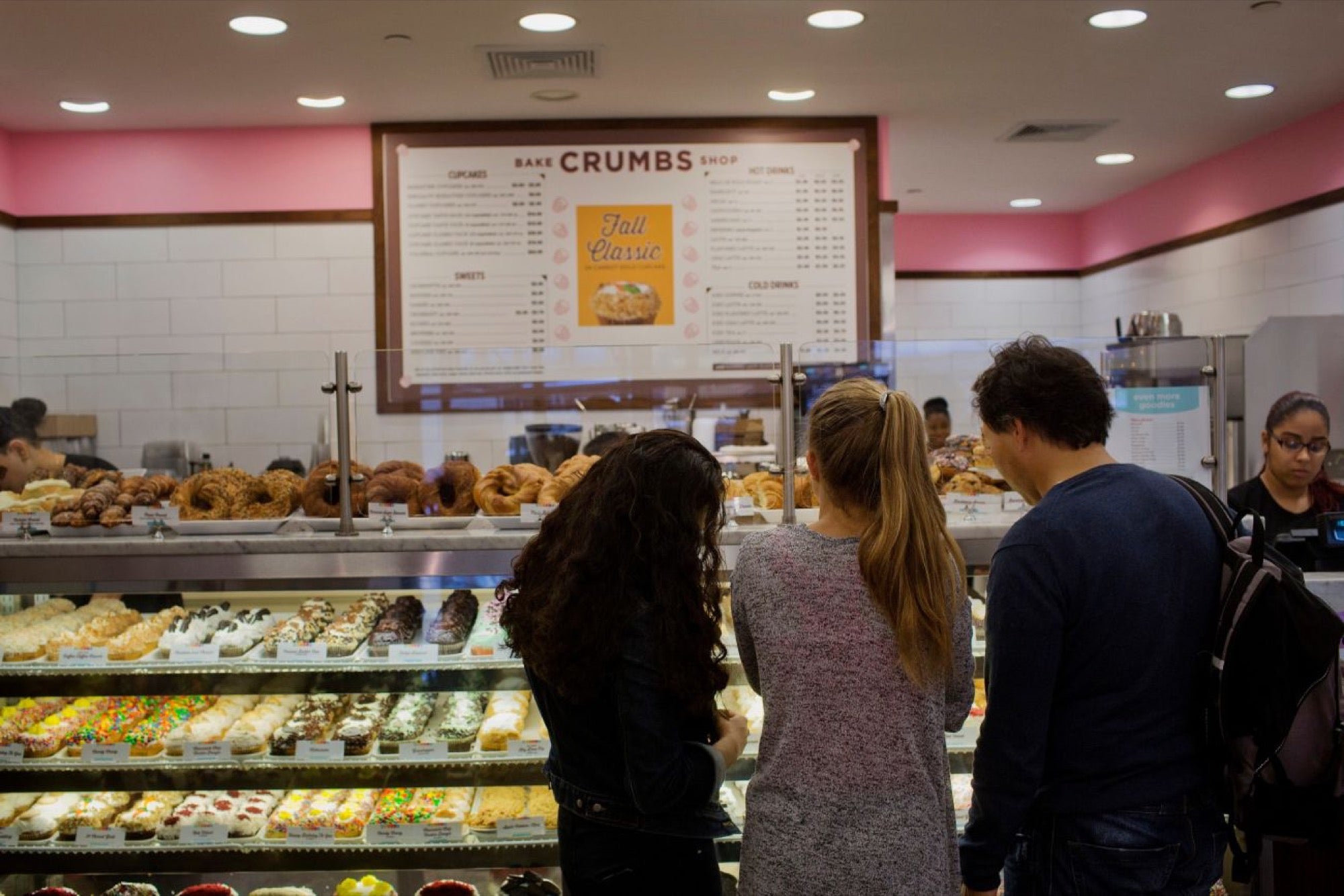5 Companies That Grew Too Quickly (and What You Can Learn From Them) Zynga, Crumbs Bake Shop and KIND Snacks are examples of companies that tried to grow too fast.Two are dead.
Edited by Dan Bova

Most entrepreneurs get into the game hoping their startups grow as quickly as possible -- but fast growth is often overrated. According to a joint study by the Kauffman Foundation and Inc., roughly two-thirds of the fastest-growing startups end up failing. Research from California State University also showed that companies studied that had fast revenue growth performed worse, long-term, than their slow-growing counterparts.
Related: You're Crazy-Busy Scaling Your Company's Growth, Right? Are You Also Scaling Its Culture?
Why is this the case? There are many possible reasons, including unforeseen variables that factor in at a higher scale, as well as costs for increased overhead and increased operational complexity. It's best to understand these effects through real-world examples, so here are five companies that went through an explosive growth period, only to end up faltering.
1. Wise Acre Frozen Treats
Jim Picariello started Wise Acre Frozen Treats back in 2006, making organic popsicles in a schoolhouse kitchen. After a year and a half, he hired a single employee, and six months after that, hired 13 more employees and entered a 3,000-square-foot manufacturing facility. By the end of the year, the company had gone bankrupt.
Picariello's product had won several awards, and interest in the company had skyrocketed; unfortunately, he jumped too soon and started hiring and buying equipment before he had the revenue or startup capital to substantiate those investments.
Related: How to Avoid the Premature Scaling Death Trap
2. 180s
As reported by Baltimore magazine, 180s started in 1994 as a partnership between founders Brian Le Gette and Ron Wilson. After their first product rose in popularity, the company began expanding to other products and other markets, even securing contracts with the military for combat clothing. In 2003, the company achieved rank 9 on Inc.'s list of the 500 fastest-growing private companies.
Unfortunately, that growth was not sustainable, and by 2006, the company had overloaded itself with debt. Fortunately, the company was acquired by Patriarch Partners in 2006; and, since then, the company has recovered smoothly -- but not all companies get that second chance.
3. Crumbs Bake Shop
As reported by the Wall Street Journal, Crumbs Bake Shop was once the biggest cupcake vendor in the world. Founded in 2003, the company got its kickstart in response to the then-growing trend of interest in cupcakes. Listed as one of Inc.'s fastest-growing companies, the cupcake chain expanded to many different cities, with dozens of stores, but the growth was not sustainable.
The high costs of maintaining physical retail locations, the declining interest in cupcakes and the company's push to open new locations despite falling sales ended up forcing the company to close most of its locations. Crumbs was then bought out of bankruptcy in 2014, and a handful of new stores were opened, but the momentum wasn't sustained; all physical locations were finally closed early last year.
4. Zynga
For a while, it seemed like the game developers at Zynga were about to change the world. Founder and CEO Mark Pincus started the company with ample entrepreneurial experience but little experience in video gaming. At the time, free games were considered low-quality and not worth downloading, but Zynga games like Poker and Mafia Wars caught on and earned millions of downloads. By 2011, the company was so popular and flush with cash that it built its own data centers for $100 million.
But the investment in new equipment and new games couldn't make up for Zynga's lack of innovation; by 2015, the company was initiating waves of layoffs and closed down its data centers in favor of more cost-efficient data service. Today, the company still exists but isn't the gaming powerhouse it used to be.
5. KIND Snacks
I'll end this list with an example that has a happy ending: KIND Snacks. When he first started the company in New York, Daniel Lubetzky had trouble making a consistent profit. As reported by USA Today, Lubetzky explained that he spent too much time and energy trying to grow fast and expand before the company was ready. Fortunately, he learned his lesson, and spent two years developing the perfect snack bar.
When he did, he attracted $20 million of funding from VMG Partners, which allowed him to grow the company consistently until 2014, when he bought his company back for $220 million in cash.
What you can learn
So, what can you take away from these examples? Obviously, growing too quickly can be as problematic as growing too slowly. Expansion is a good thing, as it brings more revenue and more opportunities; but a company needs to be scaled at a reasonable pace.
Related: Zynga Layoffs: What Happens When Startups Grow Too Fast
Entering a market before you understand it, spending money you don't have and making too many assumptions about the future can all negatively impact your chances of success, so try to take things one step at a time and grow your company with deliberate patience. It will pay off.









